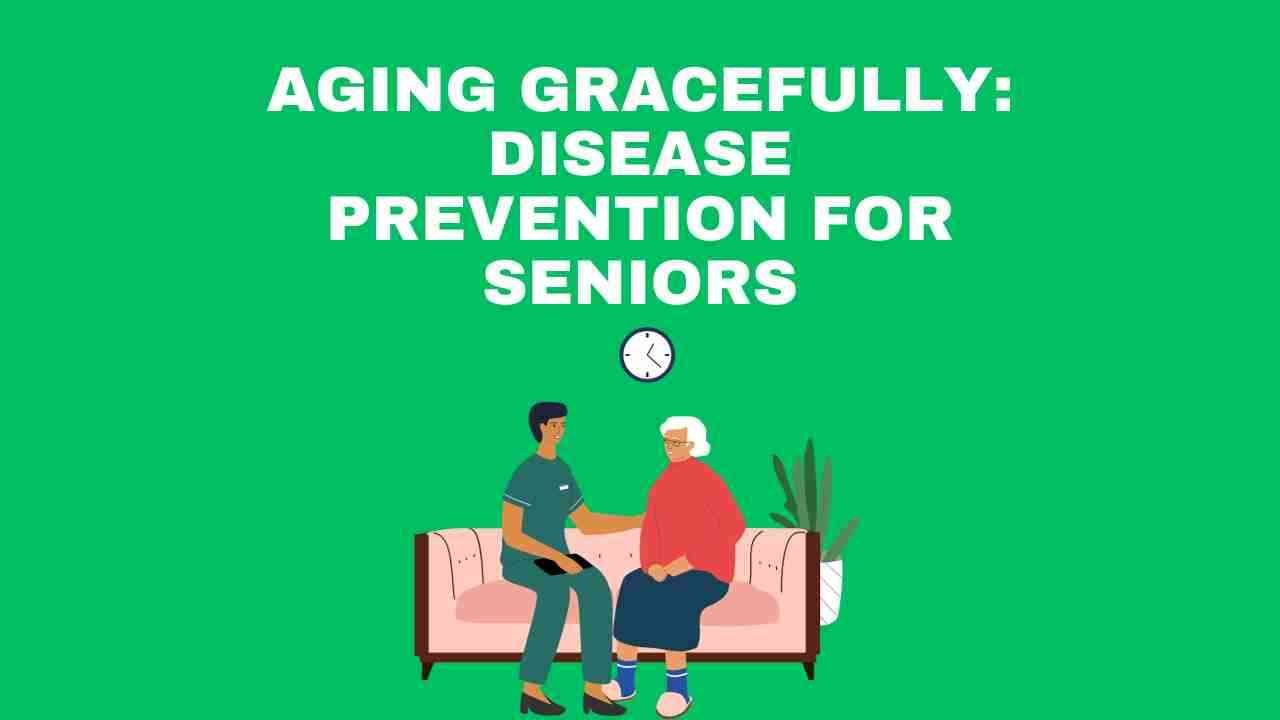As experts in the field of senior health and wellness, we understand the significance of aging gracefully and maintaining a high quality of life for our elderly loved ones. In this comprehensive guide, we will delve into essential disease prevention strategies for seniors that are designed to enhance their well-being and independence. Our aim is to provide you with actionable insights and valuable information to help you and your loved ones age with grace and vitality.
The Importance of Disease Prevention for Seniors
Aging is an inevitable part of life, but it doesn’t mean that one should resign to a life filled with ailments and health challenges. Disease prevention for seniors plays a pivotal role in ensuring that they enjoy their golden years to the fullest. By taking proactive steps to maintain health and vitality, seniors can continue to lead an active and fulfilling life.
Understanding the Challenges
Before we delve into the strategies for disease prevention, it’s crucial to understand the unique challenges that seniors face. As individuals age, their bodies undergo various changes, including a decrease in muscle mass, bone density, and metabolism. Additionally, the immune system may weaken, making seniors more susceptible to diseases and infections.
Also check: Nutrition and Disease Prevention- A Comprehensive Guide
Key Strategies for Disease Prevention in Seniors
1. Regular Exercise
Engaging in regular physical activity is a cornerstone of disease prevention for seniors. Exercise helps maintain muscle strength, improves cardiovascular health, and enhances overall mobility. Whether it’s daily walks, swimming, or yoga, finding an exercise routine that suits individual needs and preferences is essential.
2. Balanced Diet
A well-balanced diet is another critical component of senior health. Seniors should focus on consuming a variety of nutrient-rich foods, including fruits, vegetables, lean proteins, and whole grains. Adequate hydration is also crucial to maintain bodily functions.
3. Regular Health Check-ups
Frequent health check-ups are vital for early disease detection and prevention. Seniors should schedule regular appointments with their healthcare providers to monitor their blood pressure, cholesterol levels, and overall health. Vaccinations, such as the annual flu shot and pneumonia vaccine, should also be discussed and administered when necessary.
4. Mental and Emotional Well-being
Maintaining mental and emotional well-being is equally important. Engaging in activities that stimulate the mind, such as puzzles or reading, can help prevent cognitive decline. Additionally, staying socially active by participating in group activities or spending time with loved ones can reduce feelings of loneliness and depression.
5. Medication Management
Seniors who are on multiple medications should ensure proper medication management. This includes taking medications as prescribed, understanding potential side effects, and regularly reviewing medications with healthcare providers to avoid adverse interactions.
6. Fall Prevention
Falls are a common concern for seniors and can lead to serious injuries. To prevent falls, it’s essential to maintain a clutter-free living space, install grab bars in bathrooms, and use assistive devices when needed. Regular balance and strength exercises can also reduce the risk of falling.
Embracing a Healthier Lifestyle
Incorporating these disease prevention strategies into the daily routine can significantly improve the overall health and well-being of seniors. It’s important to remember that aging gracefully is not just about living longer; it’s about living better.
By prioritizing exercise, nutrition, regular check-ups, and emotional well-being, seniors can enjoy a fulfilling and independent lifestyle. Disease prevention isn’t a one-size-fits-all approach, so tailoring these strategies to individual needs and preferences is key.
In Conclusion
In our quest to help seniors age gracefully and maintain their health and independence, we’ve outlined essential disease prevention strategies. By adhering to these guidelines and making informed choices, seniors can look forward to a future filled with vitality and well-being.
Remember that it’s never too late to start on the path to healthier aging. By taking action today, you can pave the way for a brighter and more vibrant tomorrow.









